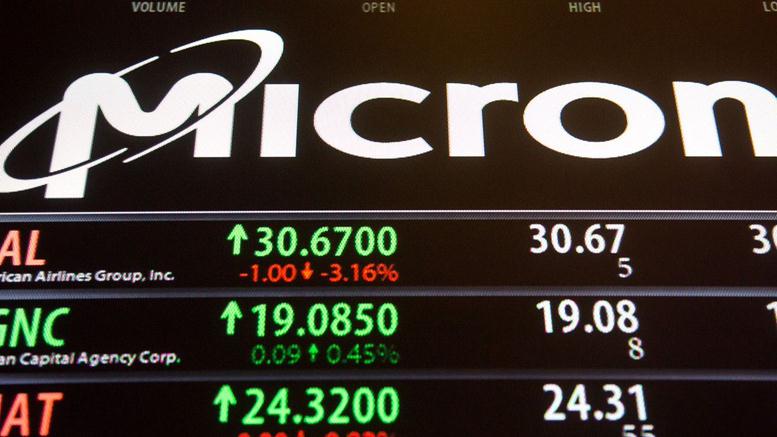Micron (NASDAQ:MU) saw its shares soar 120% this year with the roaring demand for memory chips that caused the market prices to lift to multi-year highs. Even with this increase, Micron stock still looks relatively cheap at six times next year’s earnings. Analysts are expecting revenue to rise 23%, and for earnings to rise 56% this year.
While these numbers do make Micron look like an enticing company to invest in currently, caution should still be a part of any investor’s repertoire. Here’s why.
-
Memory prices are near a cyclical peak
According to TrendForce, Micron controls 22% of the global DRAM market, making it the third largest player after Samsung (with 46% of the market) and SK Hynix (with 32% of the market). Micron also controls 13% of the NAND market, putting it fourth behind Samsung, Toshiba, and Western Digital.
The prices of both DRAM and NAND chips soared over the past year thanks to tighter supplies and heavy demand for the products. This is where the caution comes in. Those prices are peaking, and are in fact expected to plummet in 2019, according to research firm Gartner. The price drop would be great for OEMs and consumers since cheaper components mean cheaper devices and higher margins, but it would have a drastic negative effect on Micron’s business. For this reason, Micron’s revenue and earnings are expected to drop 0.2 % and 11.5% next year, respectively.
-
Market consolidation strengthens the competition
The memory chip market is a changing market at the moment. Western Digital, which had already purchased several other small NAND makers prior to this, finalized its acquisition of SanDisk last year.
In October, Toshiba agreed to sell its memory chipmaking unit to a collection of companies owned by Bain Capital and SK Hynix.
With all these mergers taking place, it could make it tougher for Micron to keep up with scale and production costs. Micron does, however, continue to have backing from Intel, and this may be enough for it to keep up with its bigger rivals.
-
One (or more) companies will ramp up production
It’s inevitable that one, or several, of the larger companies, will eventually ramp up their production line, which will, in turn, cause other companies to do the same, rebalancing supply with demand and thus lowering memory chip prices from their current multi-year highs.
Micron has stated that it won’t be boosting its DRAM capacity anytime soon and plans to instead concentrate on shrinking its die size to remain ahead of the tech curve. This certainly won’t be the case for every company though. For example, Samsung has just opened the world’s biggest chipmaking facility, which indicates that it does plan to ramp up its production, while SK Hynix stated that it will be boosting its DRAM capacity soon. Both of these moves will drive down prices and will hurt Micron more than they could a diversified tech giant like Samsung.
-
The concerns about China
Mark Durcan, Micron’s CEO last year, warned that China might flood the market with cheaper memory chips while investing more heavily in its domestic semiconductor industry. China’s state-backed Tsinghua Unigroup actually tried to buy Micron a couple of years ago, but the deal fell through thanks to US regulatory concerns.
Despite the fall-through, China has still tried to gain access to Micron’s tech. Earlier in the year, Micron’s trade secrets were leaked in two separate incidents from Taiwan to Chinese chipmakers by disgruntled employees. This means that China does indeed want to release its own memory chips, and that Durcan’s predictions are likely to come true.
Here’s why caution should be used
It’s because memory chip prices, although great right now, are approaching a cyclical peak, therefore making it highly unlikely that Micron will replicate its gains from the past year. Micron may be a good short-term investment, but for those wanting a more long-term solution, it might pay to look elsewhere.
Featured Image: twitter











